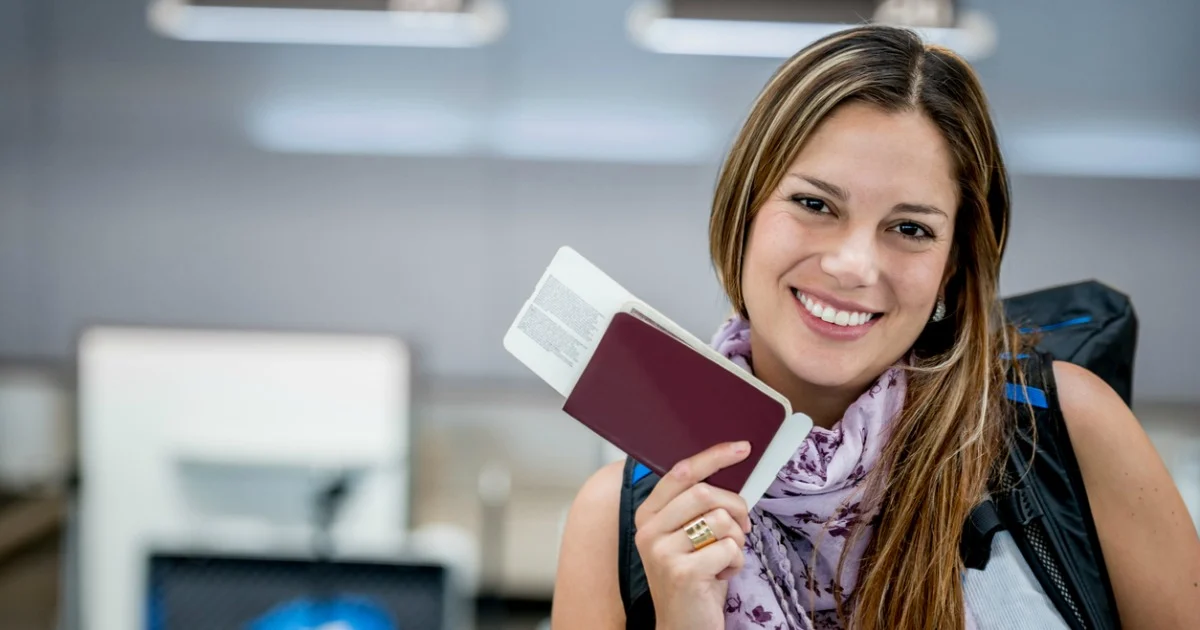Student Visa: Relocating Abroad Through Student Visa Route

For many people, the idea of studying abroad represents far more than just attending classes in another country. It is a chance to reinvent yourself, to step outside familiar borders, and to open the door to a new way of life. The student visa is the bridge that makes that dream possible. It’s the route that has allowed millions of young professionals, dreamers, and scholars to gain world-class education, work experience, and even long-term residency in some of the most advanced nations on earth.
A student visa is often the most strategic path for anyone hoping to live abroad. It’s not only about learning in another classroom but about positioning yourself in a global market. Whether your goal is to return home with valuable skills, launch a career overseas, or build an international network, the student visa route is where those goals begin.
So, let’s take this apart carefully. What makes the student visa route so special? Which countries should you consider? How do you apply, and what can you do to improve your chances of success? This guide walks you through every step.
Why the Student Visa Route Makes Sense
Student visas are more than just permission slips to attend classes abroad. They’re passports to opportunity. Unlike tourist or work permits, a student visa often comes with built-in flexibility that lets you study, work, and even extend your stay after graduation.
Many countries design their student visa policies to attract global talent. Governments see international students as future innovators, entrepreneurs, and contributors to their economies. This means that when you apply for a student visa, you’re stepping into a system that genuinely welcomes ambitious learners.
Access to World-Class Education
When you hold a student visa, you’re not just getting entry into another country. You’re gaining access to some of the best educational systems in the world. Nations like the United States, Canada, the United Kingdom, Germany, and Australia have invested heavily in higher education. Their universities are built around research, innovation, and global collaboration. Graduating from one of these institutions can redefine your career trajectory. It signals that you’ve been trained to compete on a global stage.
A degree from an internationally recognized university carries weight. Employers, both abroad and back home, see it as proof of competence, adaptability, and resilience. More importantly, it exposes you to ways of thinking that might be completely different from what you’re used to. You’re not just learning a subject, you’re learning a culture, a work ethic, and a mindset.
Work Opportunities While Studying
Another reason the student visa route stands out is the opportunity to work while you study. This is a huge advantage for anyone who wants to gain practical experience and support themselves financially.
Countries like Canada, the United Kingdom, and Australia allow international students to work part-time during semesters and full-time during breaks. This means you can earn money, build your resume, and even develop local professional contacts before you graduate. It’s one of the best ways to integrate into your new environment.
For instance, a computer science student in Toronto might land a part-time internship at a local tech startup. A business student in London could assist with research at a consulting firm. These experiences make your studies more meaningful and your profile stronger for future job applications.
The Path Toward Residency and Long-Term Opportunities
Let’s be honest, many students who travel abroad for studies are also thinking long-term. The good news is that most countries understand this. They know that international graduates are often highly skilled and already adapted to their environment. That’s why so many of them have built clear pathways from student visas to work permits and, eventually, permanent residency.
In Canada, for example, graduates can apply for a Post-Graduation Work Permit that lasts up to three years. In the UK, the Graduate Route visa lets you stay for two to three years to find a job. Australia and New Zealand have similar post-study opportunities. If you gain relevant work experience and meet immigration criteria, your student visa journey can evolve into permanent settlement.
In other words, your studies can become the foundation for a life abroad.
Networking and Global Exposure
Studying abroad puts you in the middle of a global classroom. You’re surrounded by people from different cultures, languages, and professional backgrounds. This diversity is one of the most underrated benefits of a student visa.
It pushes you to grow personally and professionally. You learn how to communicate across cultures, how to adapt quickly, and how to collaborate with people who think differently. These are the exact skills that global employers value today.
The connections you build can last for years. Many international students end up co-founding companies, collaborating on research, or helping one another find opportunities long after graduation.
Choosing the Right Country for Your Student Visa
Your choice of destination can shape your entire experience. Each country offers a different academic culture, immigration rules, cost of living, and post-study options, all of which vary. Let’s break down the top destinations right now.
Canada
Canada consistently ranks as one of the most student-friendly countries in the world. Its universities are respected globally, and its immigration system is designed to attract skilled graduates. The Post-Graduation Work Permit allows you to stay and work after your studies, which makes it easier to gain experience and apply for permanent residency later. Add in a welcoming multicultural society and relatively affordable tuition, and you have one of the best student visa options available.
United States
The United States has long been the dream destination for international students. The F1 visa allows you to study full-time and participate in Optional Practical Training after graduation. With over four thousand universities and countless research programs, the US offers unmatched diversity in courses and specializations. While the visa process can be competitive, those who plan carefully can thrive academically and professionally.
United Kingdom
British education has a reputation for academic excellence that stretches back centuries. The Graduate Route visa makes the UK especially appealing today, allowing graduates to stay for up to two years to work or look for work. The UK’s proximity to Europe also provides access to international job markets and cultural experiences that few other countries can match.
Australia
Australia combines high-quality education with an easygoing lifestyle. The Temporary Graduate visa gives you the right to stay and work after completing your degree. The country’s focus on research, technology, and innovation attracts students in fields ranging from healthcare to engineering.
Germany
Germany stands out for its low tuition costs and strong economy. Many universities charge little or no tuition, even for international students. With excellent job opportunities in engineering, IT, and science, Germany is becoming one of the best choices for ambitious students who want affordable yet high-quality education.
How to Apply for a Student Visa
Let’s get into the process. The steps can vary slightly by country, but the overall structure is the same.
Step 1: Research and Apply to Universities
Start early. Research institutions that match your interests, career goals, and financial situation. Look at admission deadlines, course requirements, and available scholarships. Make sure the school is accredited and recognized by the immigration authority of that country.
Step 2: Secure Admission and Receive an Offer Letter
Once you’ve been accepted, you’ll receive an offer letter from the institution. This is one of the most important documents in your visa application, as it officially confirms your student status.
Step 3: Prepare Your Financial Proof
You’ll need to show that you can pay tuition and living expenses. This might include bank statements, sponsorship letters, or scholarship confirmation. Consular officers want to see that you won’t run out of funds halfway through your studies.
Step 4: Complete the Visa Application
Visit the official immigration website of your chosen country. Fill out the form carefully and double-check every detail. Mistakes or inconsistencies can delay your approval.
Step 5: Attend an Interview if Required
Some countries, like the United States, require a personal interview. Be honest, calm, and clear about your study plans, financial situation, and future goals. The officer wants to confirm that you are a genuine student with legitimate intentions.
Step 6: Wait for Approval
Visa processing times differ by country. Applying early gives you room for unexpected delays. Once approved, you’ll receive your visa sticker or approval notice.
Documents and Requirements You’ll Need
Most student visa applications require a similar set of documents. Here’s what you’ll generally need to prepare:
-
A valid passport that’s good for at least six months beyond your intended stay.
-
An official admission letter from a recognized university or college.
-
Proof of funds showing you can afford tuition, housing, and living costs.
-
Academic transcripts and certificates from previous studies.
-
Health insurance coverage that meets the country’s standards.
-
A police clearance certificate proving you have no criminal background.
-
Proof of English proficiency, such as IELTS, TOEFL, or PTE scores.
-
Recent passport photographs that meet visa specifications.
-
Biometric information, like fingerprints, may be required.
Keep all documents organized in a folder and labeled clearly. Presentation matters. A neat, well-prepared file shows seriousness and reduces the risk of missing anything.
Preparing for Life as an International Student
Getting the visa is just the start. Once approved, the real journey begins. Adjusting to a new country can be both exciting and overwhelming. The better you prepare, the easier the transition.
Finding Accommodation
Before you travel, decide where you’ll stay. On-campus housing is usually the most convenient for first-year students, offering safety and proximity to classes. If you prefer independence, private rentals or shared apartments give you more space and flexibility. Homestays, on the other hand, provide cultural immersion and often include meals.
Managing Finances
Open a student bank account as soon as you arrive. It will make paying rent and managing expenses easier. Many banks have special student packages with no monthly fees. Budgeting early will help you avoid stress later.
Health and Safety
Activate your student health insurance immediately. Keep emergency contacts handy, including local police and your country’s embassy. Learn local laws and safety tips so you can navigate confidently.
Building a Community
Join student associations, attend events, and connect with classmates. The people you meet during your studies often become lifelong friends or professional allies. A strong network will help you adapt and find new opportunities.
How to Boost Your Student Visa Approval Chances
Success in the visa process comes down to preparation and authenticity. Here are some final tips I would recommend that you follow.
- Keep a strong academic record that shows consistency and focus.
- Write a clear statement of purpose that connects your goals to the program you’ve chosen.
- Provide truthful information in every document and during your interview.
- Be ready to explain how your studies fit into your long-term career plan.
- Stay informed about policy changes by checking official immigration websites regularly.
Conclusion
The student visa route is much more than a gateway to education, it’s an investment in your future. It gives you the chance to grow academically, professionally, and personally. You’ll gain skills that make you globally competitive and experiences that shape how you see the world.
Success doesn’t come from luck. It comes from research, preparation, and the confidence to take the first step. Whether your dream is to walk through the gates of a top university, gain international work experience, or eventually call another country home, the student visa is your foundation. With the right mindset and planning, your journey from a local classroom to an international campus is completely within reach.













